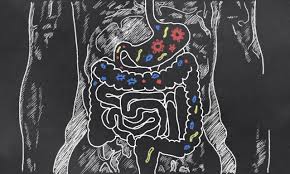
Breaking News
 Is the White House Actually the Overlook Hotel East?
Is the White House Actually the Overlook Hotel East?
 QatarEnergy Declares Force Majeure As One-Fifth Of Global LNG Supply Goes Dark
QatarEnergy Declares Force Majeure As One-Fifth Of Global LNG Supply Goes Dark
 Primary Losers: Crockett Cries 'Disenfranchisement', Crenshaw Crushed
Primary Losers: Crockett Cries 'Disenfranchisement', Crenshaw Crushed
 U.S. Submarine Sinks Iranian Warship In First Torpedo Kill Since WWII
U.S. Submarine Sinks Iranian Warship In First Torpedo Kill Since WWII
Top Tech News
 US particle accelerators turn nuclear waste into electricity, cut radioactive life by 99.7%
US particle accelerators turn nuclear waste into electricity, cut radioactive life by 99.7%
 Blast Them: A Rutgers Scientist Uses Lasers to Kill Weeds
Blast Them: A Rutgers Scientist Uses Lasers to Kill Weeds
 H100 GPUs that cost $40,000 new are now selling for around $6,000 on eBay, an 85% drop.
H100 GPUs that cost $40,000 new are now selling for around $6,000 on eBay, an 85% drop.
 We finally know exactly why spider silk is stronger than steel.
We finally know exactly why spider silk is stronger than steel.
 She ran out of options at 12. Then her own cells came back to save her.
She ran out of options at 12. Then her own cells came back to save her.
 A cardiovascular revolution is silently unfolding in cardiac intervention labs.
A cardiovascular revolution is silently unfolding in cardiac intervention labs.
 DARPA chooses two to develop insect-size robots for complex jobs like disaster relief...
DARPA chooses two to develop insect-size robots for complex jobs like disaster relief...
 Multimaterial 3D printer builds fully functional electric motor from scratch in hours
Multimaterial 3D printer builds fully functional electric motor from scratch in hours
 WindRunner: The largest cargo aircraft ever to be built, capable of carrying six Chinooks
WindRunner: The largest cargo aircraft ever to be built, capable of carrying six Chinooks
Fountain of youth -- is a fecal transplant? Procedure may turn back clock on aging brain

An international team finds fecal transplants from older to younger mice impacts the learning and memory abilities of the recipient. By altering the gut microbiome of the younger mice, researchers say they began to act more like their older donors. These changes included some of the same cognitive impairments older brains suffer from.
"Research has shown that the aging process may be linked with age-related changes in our gut microbiota," Dr. David Vauzour from the University of East Anglia says in a release. "We wanted to see whether transferring gut microbes from older to younger mice could affect parts of the central nervous system associated with aging."
What is a fecal transplant?
Simply put, fecal transplants involve taking stool from a healthy person and placing it in the colon of someone else. In humans, the recipient is usually someone who is very sick and could have a bacterial infection.

 RNA Crop Spray: Should We Be Worried?
RNA Crop Spray: Should We Be Worried?

